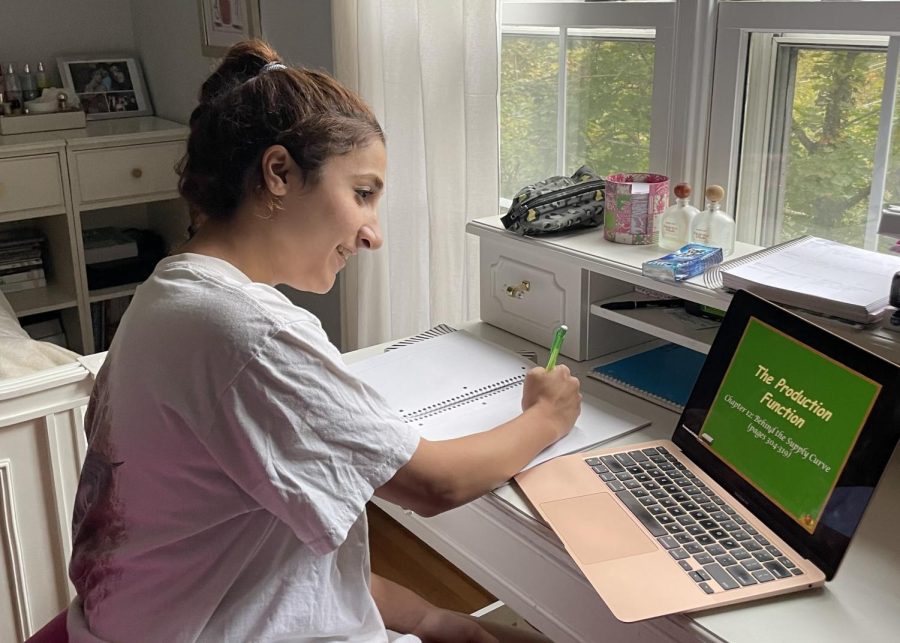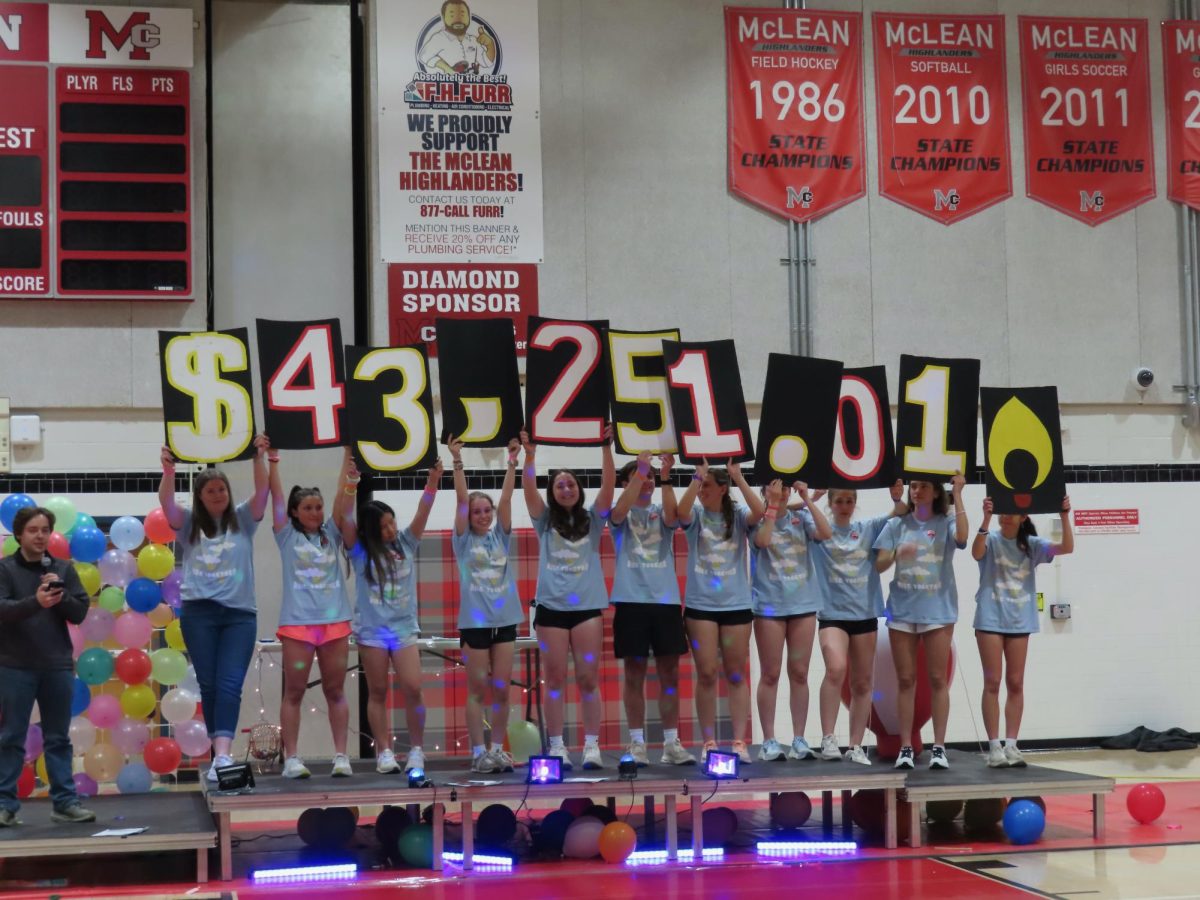In an age of increasing digital education, more students are opting to take some of their classes online, attracted by the convenience and lightened rigor. With long hours spent playing sports or working jobs, busy students find it difficult to devote enough time to schoolwork. Students find online classes beneficial, as they are held once a week as opposed to two or three times a week.
Ava Farivar is a senior taking AP Microeconomics and AP Macroeconomics, a class known for having a demanding workload. Farivar has found that taking the class online has made it easier to stay on top of the assignments and create a personalized study schedule.
“I really wanted to be able to take my time with [the class] during the week,” Farivar said. “I come in late every red day, but I use the extra time spent at home efficiently. Whether it’s using that time to work on other classes or Economics, I can prioritize the classes that require the most time from me for any specific week.”
Like many other seniors, Farivar often becomes overwhelmed trying to balance various commitments.
“It would be a lot more difficult to take in person because there is a lot more pressure to get assignments done by the block schedule, and I find that way too fast-paced,” Farivar said. “As an Economics class and an AP, I wanted to take my time so I really understood [the material] before the exam.”
Online classes are especially beneficial to athletes participating in extracurricular activities.
“Staying on top of my other classes’ work is a whole lot easier now that I have more time to do it,” said junior Jocelyn Brooks, a competitive diver, who takes US & VA History Honors online. “I also have more time to train and get better as an athlete without having to cram homework late every night.”
AP Calculus BC teacher Crissie Ricketts started teaching online classes in 2010, joining FCPS’s Online Campus program in 2015.
“[Teaching online classes] started out as a way to make extra money,” Ricketts said. “It’s like a second job, but it pays really well.”
Online classes allow students to learn from any location through the use of remote meeting services.
“It’s flexible, and I can [teach from] anywhere. I can do it sitting by myself at home, I could do it at the beach in the summer,” Ricketts said. “It’s as good for teachers to be flexible [as it is for students].”
However, students often prefer in-person classes because they allow for personalized interactions between teachers and students.
“[One difficulty is making sure that] every student is aware of what’s going on,” said Steven Walker, who teaches dual enrollment precalculus through FCPS Online Campus. “In class, I can look around and tell who’s not paying attention and get their attention, and make sure they understand [the topic]. Online, it’s more like you’re throwing [information] out there and just hoping that every kid that’s logged in is actually in front of the computer screen.”
Communicating online makes it harder for students to form connections with their teachers and ask for help, whereas in a classroom setting, students are able to work on projects and facilitate discussions more easily.
“I think it’s less social,” Ricketts said. “I think that a lot of times the benefit to being in a classroom is collaborating with your peers.”
Additionally, online learning raises concerns about academic integrity, as some students find easier ways to cheat on exams and assignments.
“I’ll have four in-person exams for Calculus this year which will be 70% of their grade,” Ricketts said. “If [students] don’t take it seriously and don’t learn [the material], they’re going to struggle on the in-person exams.”
Despite drawbacks, online classes have seen an increase in registration at McLean as they become a more popular option for students. Enrollment numbers in such classes are expected to rise due to the flexibility and options for time management they offer.
“You can study and learn on your own time, the material meets you where you are,” Ricketts said. “ [Students can learn] anywhere, anytime of the day.”















